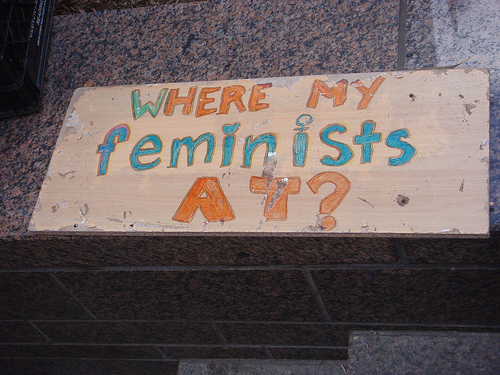Joss Whedon was recently honoured at an event called Make Equality Reality for his work in promoting gender equality. The sci-fi writer and director extraordinaire has long been an advocate for the cause and he gave an excellent speech in 2006 that addressed his distaste towards being asked why he writes strong female characters — namely, that nobody is asking other directors why they aren’t.
Many are familiar with that speech because, as we all know, pithy and poignant speeches have the opportunity to reach millions when they go viral, which is exactly why it is important for us to look at who gets these platforms and what their contributions to the larger discourse surrounding these issues have the power to do.
Whedon’s more recent speech was well intentioned but strongly missed the mark, transforming him from a feminist ally into a nescient spokesperson. While it’s laudable that someone in his position addresses the lack of admirable feminine heroines in the movie industry, speaking to the history of the word feminist revealed Whedon as someone thrown into the public sphere discussing an issue out of their range.
Although he is a seemingly humble and personable guy — in an industry notoriously fraught with egotism — I can’t help but be perplexed by his decision to critique the cacophony of the word feminist itself, never mind its historical place in the movement towards equality.
The overarching theme of Whedon’s troubles with the word feminist stems from his idea that equality is a natural state of the human condition that we must have simply been perverting for thousands of years. Those of us who are “intelligent, evolved and compassionate” apparently have the capacity to reveal this “natural” condition of things, and well this is exactly the kind of rhetoric that feminists take issue with.
The question of what is natural and what isn’t ignores the oppressive quality of the question itself.
Second and third-wave feminists have worked diligently to move beyond questioning what is a natural state of being, which work is natural for whom, whose bodies are natural and whose relationships are natural — a common rhetorical tool of the right and those who work to uphold hierarchical systems of power.
Whedon is operating under the assumption that natural equals good, whereas feminists question the assumptions themselves. Stating that the word feminist itself fails us trivializes and disavows the history of the work that feminists have done. To suggest that we are now at a state that is beyond the necessity of this specific word is to dismiss the everyday reification of misogyny that self-identified women still face, whether Whedon intended this or not.
The pertinent question of our time has become whether feminism needs to be re-branded so that more people hop aboard the equality bandwagon. This is precisely where Whedon and his oblivious critique matter; his failure to recognize his privilege as a white, heterosexual, middle-to-upper class male as he proposed the use of the term genderist in place of feminist is a re-branding that ignores current feminist activism, and therefore a complete lack of engagement with its ongoing work.
He prescribes this reclassification because it would better contextualize the current problems of gender disparity, but had Whedon done his homework, he would know that much of present-day feminist work is all about contextualizing these issues — it’s called intersectionality and it is a major tenet of third-wave feminism.
Why does it matter that Whedon said some ignorant things about feminism at some gala?
When those who inhabit the dominant place in society become the spokespeople for those in marginalized positions it silences the voices they purport to represent. His own demographics are seen as the standard (maybe even, natural?), so there is more at stake when he ignores his own relation to power and criticizes the word feminist without actually engaging with its discourse.
Whedon’s opinions matter because they are being given a platform where they can be widely disseminated, contributing to a political arena already over-saturated with his demographics’ voice.
Statistics by the World Economic Forum reinforces this fact: the annual release of their Global Gender Gap Report has seen Canada’s rankings decline in recent years and, notably, Canadian women’s political empowerment ranking fell from 38th to 42nd between 2012-2013.
This isn’t to say that a cis-male cannot be a publicly outspoken ally to feminists but we should implore them to do the work feminists purposefully do all the time: educate yourself and recognize your privilege.
It’s a problem when Whedon’s uninformed genderist voice is louder than our feminist ones.
Jessica Knowler is a Gender, Sexuality and Women’s Studies student at Simon Fraser University and a committee member of the youth activist group Young Women Civic Leaders that promotes and encourages full participation of young women at all levels of civic, political and community life.



